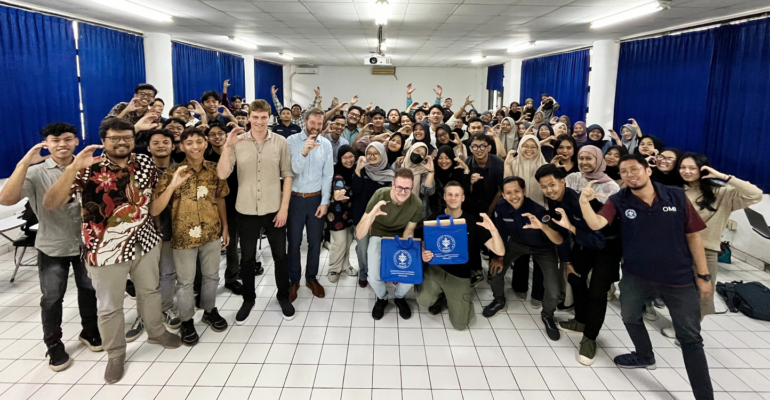Arrival of Experts from the Netherlands, IPB University Students Learn and Discuss RAS Technology

The Master Trainer Team from Zone Collage The Netherland, a vocational school in the Netherlands, visited the IPB Dramaga Campus to share their knowledge and experience with students regarding cultivation technology using the Recirculating Aquaculture System (RAS).
On that occasion, students from the Department of Aquaculture (BDP), Faculty of Fisheries and Marine Sciences (FPIK) IPB University batch 58 who were part of the Aquaculture Integrated Practice Course (MK PTA), had the opportunity to introduce the RAS Do It Yourself (RAS DIY) project and discuss with the Zone Collage team regarding this matter.
“In fact, this Master Trainer Team will actually accompany the Vocational Education Development Center for Agriculture (Vedca) to improve the abilities of vocational school teachers in Indonesia. Luckily, they can also share with IPB University students. We are grateful that MK PTA can be collaborated and enriched through discussions with RAS experts and teachers at Zone Collage,” said Fajar Maulana, MSi as the person in charge of the practicum.
He added that RAS DIY can be an illustration and guide for future thematic real work lecture activities (KKNT) which can be implemented in the community using materials and goods available around. “We hope that students can learn a lot from the experience of building the RAS system and can discuss a lot with the team from Zone Collage,” he said.
One of the students, Tariq Khalfani Permadi, presented the results of a joint project that had been carried out this semester. This activity aims to share experiences and knowledge related to sustainable aquatic cultivation practices.
The discussion material covered includes RAS design, important components of RAS, biosecurity aspects, water quality management, feeding and evaluating fish growth, and calculating system dimension requirements. Later, it is hoped that IPB University students will be able to build, evaluate and overcome problems that occur while the RAS system is running.
“We are impressed with the use of used materials in building the DIY RAS system, because it can be useful and valuable for producing biomass in the form of tilapia fish even though the scale can still be categorized as small,” said Thijs Rutters, Director of Global Cooperation at Zone Collage.
The activity at IPB University ended by seeing the BDP Department’s educational and business facilities in the form of tilapia fish rearing ponds, tilapia hatchery tanks, mini feed factories. (*/Rz) (IAAS/HSY)



